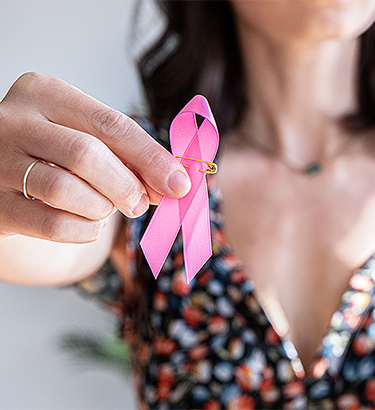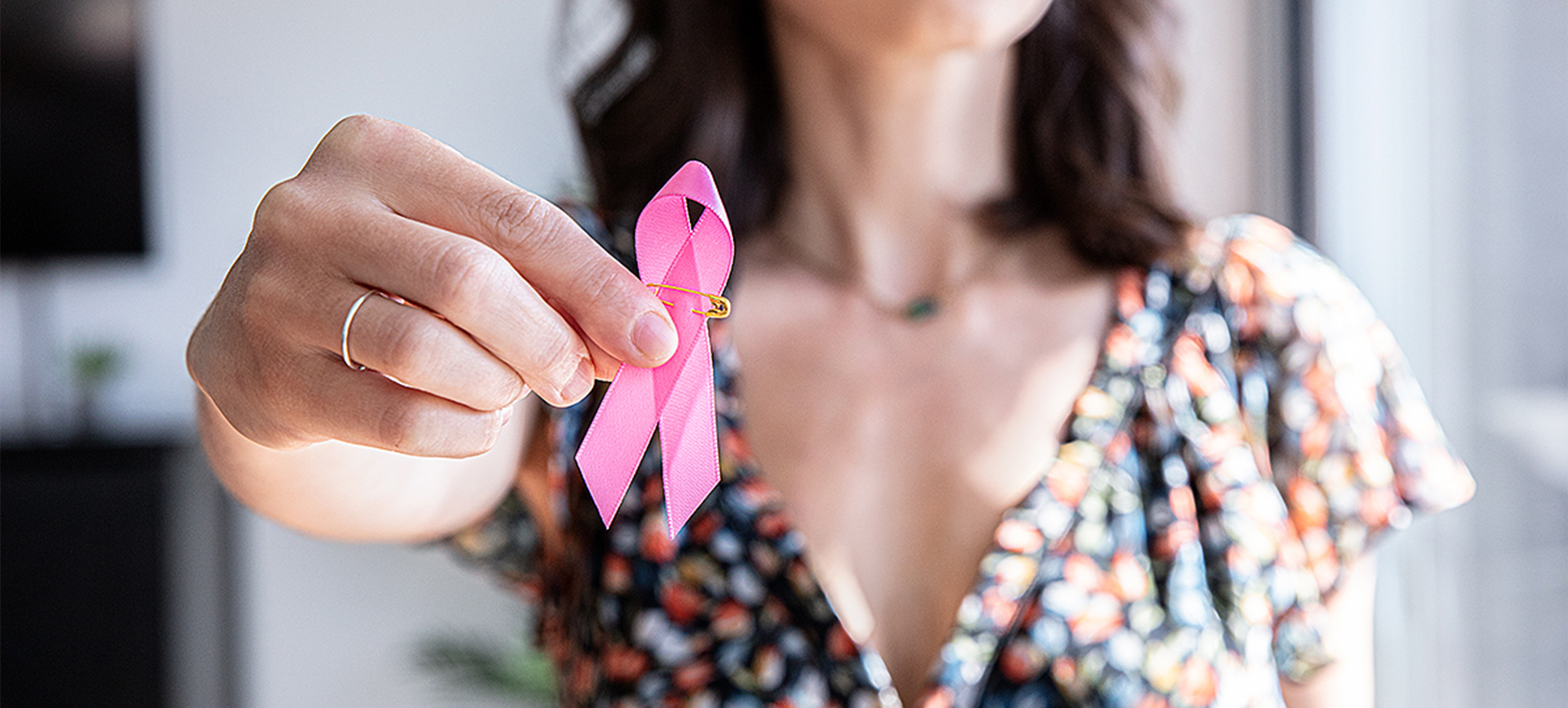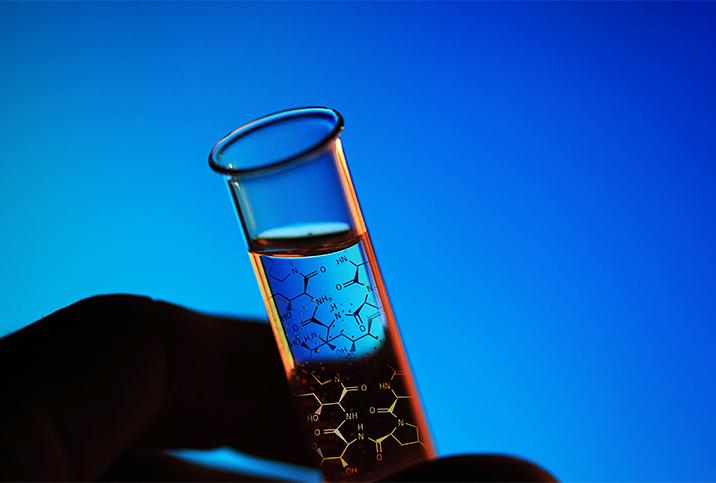Welcome to Giddy's series for Breast Cancer Awareness Month. Each week, we will take a deep dive into an aspect of the breast cancer experience. This week, we'll take a look at the misconceptions of genetic testing. Can you still get breast cancer if you’ve tested negative for the BRCA gene mutation? Read on to find out.


No Genetic Risk, Still Diagnosed With Breast Cancer
Harvard Medical School termed it the "Angelina Jolie Effect." In 2013, the actress shared she underwent a preemptory bilateral mastectomy after testing positive for the BRCA1 gene mutations linked with breast cancer and ovarian cancer.
In the two weeks following her interview, there was a "64 percent uptick in the rates of genetic testing for breast cancer." In essence, Jolie's personal experience shed light on the availability of genetic testing and helped fuel an increase in actual tests taken.
Jolie's advocacy didn't just last a couple of weeks, though. Her desire to take her health into her own hands after the death of her mother, who lost her battle to ovarian and breast cancer, had lasting effects that played a role in an ongoing narrative of women choosing to take steps to safeguard their health.
"I had heard Angelina Jolie advocating about genetic testing, as her mother died from ovarian cancer, but I put it off for a couple of years," recalled Marisa Sullivan, a breast cancer survivor and journalist who writes for Giddy.
Sullivan's own grandmother and aunt died of ovarian cancer, so Jolie's experience hit close to home. Plus, she had experienced previously benign ovarian cysts, and she wanted to "stay ahead" of a potential diagnosis if she, too, happened to carry the genes. So, she went ahead and got tested.
Genetic testing takes some time, so Sullivan had to wait. When the results came back, she was both relieved and surprised: She didn't carry the genetic mutation. Of course, Sullivan understood testing negative for the BRCA1 and BRCA2 mutations didn't mean she would be free and clear of future breast or ovarian cancer diagnoses, but certainly, she assumed her risk would be lower.
Unfortunately, Sullivan's "high" after testing negative didn't last long. Just a few months later, while lying in bed, she found a lump. "I absentmindedly put my hand on it. I yelped. It was the size of a walnut, hard, and seemed to come out of nowhere," she said. "My doctor reassured me that because of my lack of family history of breast cancer and my age (relatively young), that it would most likely be benign—80 percent of breast lumps wind up being benign."

But, it wasn't benign. It was triple-negative breast cancer, a fast-growing cancer that requires aggressive treatment.
"I had just been scheduled for my first mammogram, so I was a couple months ahead of the game," Sullivan recalled, which might have played a role in her positive treatment outcomes. "Early detection is always key."
While Sullivan was surprised by her diagnosis, especially after her negative genetic test results, she didn't feel betrayed or angry she ended up with breast cancer. The reality is, the vast majority of breast cancer diagnoses aren't related to family history.
"There's a huge misconception that women who don't carry the genetic mutations will be fine," she explained. "That definitely was, and is not, the case."
According to BreastCancer.org, only about 5 percent to 10 percent of all breast cancer cases are thought to be hereditary, and less than 15 percent of those people with a diagnosis have a family history of the disease.
Of course, if you do have a first-degree family member with breast cancer (or as with Sullivan, ovarian cancer), your risk of a diagnosis increases significantly, which is why genetic testing in some cases is prudent. But if you don't have a family history? That's not a reason to get complacent about monthly breast self-exams or regular mammograms.
Sullivan cautioned that women should get checked according to regular guidelines—whether or not they have a family history of breast cancer. "Listen to your body. Do self-checks just in case, then discuss with your doctor what age is best to start getting mammograms," said Sullivan.
You may think if genetic testing isn't a fail-safe for identifying cancer risk, that it might not be good for much. But that's simply not true. For instance, the fact Sullivan knew she didn't carry the gene mutations actually played a role in her decision to undergo a lumpectomy rather than a mastectomy.
"My doctors basically said it was my choice, as the stats are the same for either plan with a triple-negative breast cancer which isn't hormone-fueled," she said. "If I had a higher risk and was BRCA positive, I would have considered the mastectomy."
But that's not the only positive outcome of knowing you're negative for genetic predispositions. Jennifer McGuffin, a breast cancer survivor and the chief communications officer for a law group in Chicago, points to the relief it provided her that she didn't pass a gene on to her daughters.
McGuffin didn't undergo genetic screening prior to her diagnosis in 2018 because she didn't have a family history of the disease, but due to a long history of benign lumps and calcifications that had to be removed, she was diligent about getting regular mammograms.

"When they found another spot on my mammogram in October 2018, we all figured it was just another 'thing,'" she recalls. But this time, that wasn't the case. "I could tell by the way the doctor put his hand on my shoulder as he completed the biopsy that he knew what it was. Two days later I got the news that it was cancer."
In an effort to get a handle on what they were dealing with, and what the best treatment options would be, McGuffin underwent genetic testing, and all her tests came back negative. "I was relieved for my two daughters that they don't have that genetic risk from me…but we've lived in the same environment, and [the doctors] believe it came from environmental factors," she said. "There's still so much to learn about this disease."
And that's truly the lesson here: The risks for and causes of breast cancer are still being investigated, and there are no hard and fast rules. Just because you test negative for breast cancer-related genetic mutations doesn't mean you won't develop breast cancer at a later date. And just because you test positive for breast cancer-related gene mutations doesn't mean you're guaranteed to end up with cancer (although it does substantially increase your risk).
Genetic testing is a tool in the toolbox of patients and doctors working to assess cancer risk, but it's one of many tools, not the only one available. So, use diligence, do self-checks, take care of your health, get your mammograms, and if advised, get genetic testing. The more that can be done to detect cancers early, the better outcomes you're likely to have.









